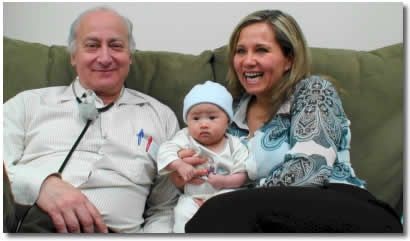 Put Breastfeeding on the map! As a species, we have survived because of breastfeeding. With the advent of corporations devising infant formulas to help moms who return to work, or to help moms who can’t breastfeed, and to help dads feel bonded to their babies – formula in Western Society has become the expected way to feed your baby.
Put Breastfeeding on the map! As a species, we have survived because of breastfeeding. With the advent of corporations devising infant formulas to help moms who return to work, or to help moms who can’t breastfeed, and to help dads feel bonded to their babies – formula in Western Society has become the expected way to feed your baby.
But does the choice to breastfeed or formula feed define your ability to be a mom? Absolutely not.
So, why do we celebrate World Breastfeeding Week for an entire week around the world (First week of October in Canada)?
We celebrate what has been passed down to us through evolution (or creation). We have breasts to feed our children. They weren’t positioned to hold up strapless gowns, nor were they created for the purpose of pleasing our mates.
There have been 2 or 3 generations in Canada who haven’t breastfed. Much knowledge has been lost.
Thanks to the La Leche League and more recent peer-to-peer groups, mother-to-mother support is filling the hole made by the lack of breastfeeding knowledge among family members, and the relative lack of medical information in our medical systems. For years, doctors and hospitals have been visited by formula company representatives. This does not make the doctors knowledgeable about breastfeeding. They only learned to give a bottle when there was an breastfeeding issue.
Many doctors today still do the same thing. Push the formula and don’t give mom breastfeeding support. I’ve heard them. Clients also tell me. They need support in their choices, not a heartbreaking way out.
There is no money in breastfeeding. A Lactation Consultant could spend time visiting doctors like formula companies do, discussing the risks to formula feeding (and those risks are many and documented). She would not have money to leave freebies at the office – pens, measuring tape, free samples. There is no money for breastfeeding promotion.
How will the doctors and nurses learn? I know recent grads from medical schools who were given 3 hours of breastfeeding education over the course of their studies. Clients who take classes with me also get 3 hours but I wonder which is of better service?
This is one reason why we celebrate breastfeeding for a week: We need to let people know about the damage the marketing of formulas has done to our psyche and to our general health.
This is not about being “mom enough.” This is about remembering that biologically and physiologically speaking, the normal way to feed our children is by breastfeeding. Celebrate World Breastfeeding Week in October. This is not about any ‘mommy wars’ which are born and bred by the media. This is about helping women feel happy in their choice to breastfeed – under a blanket or not. This is about getting letting every know that breastfeeding needs to be seen and celebrated, if only this one week a year. Stephanie MacDonald.


